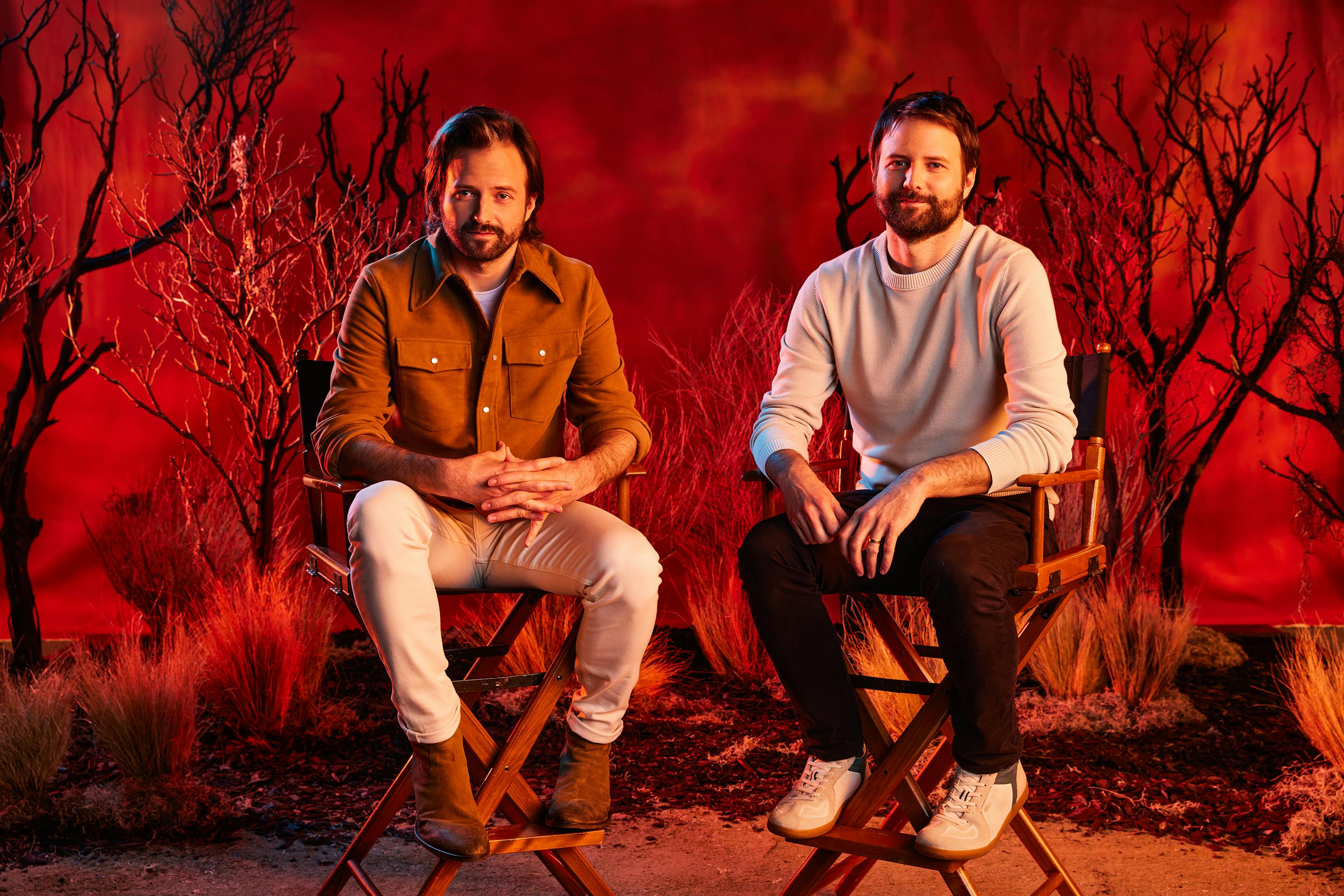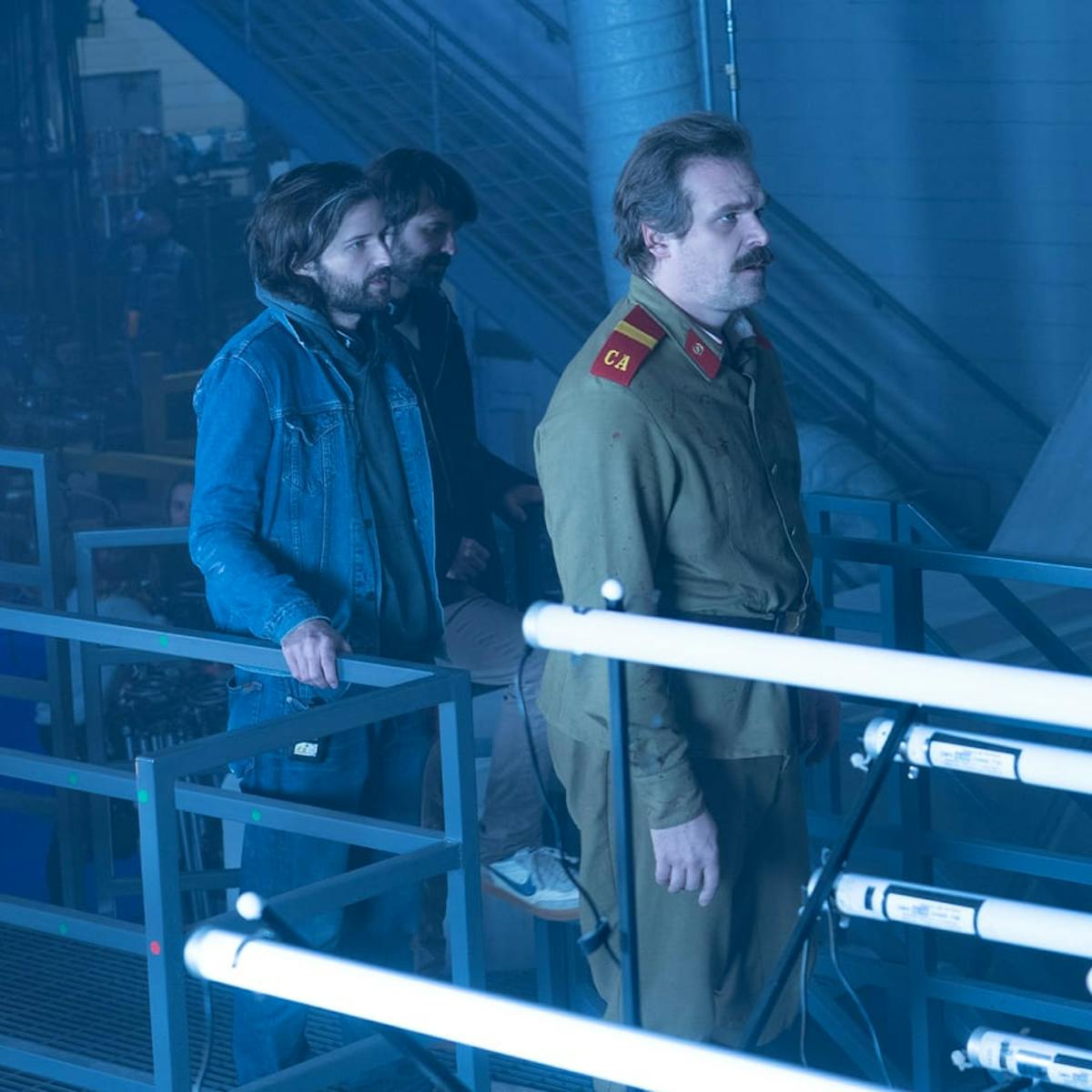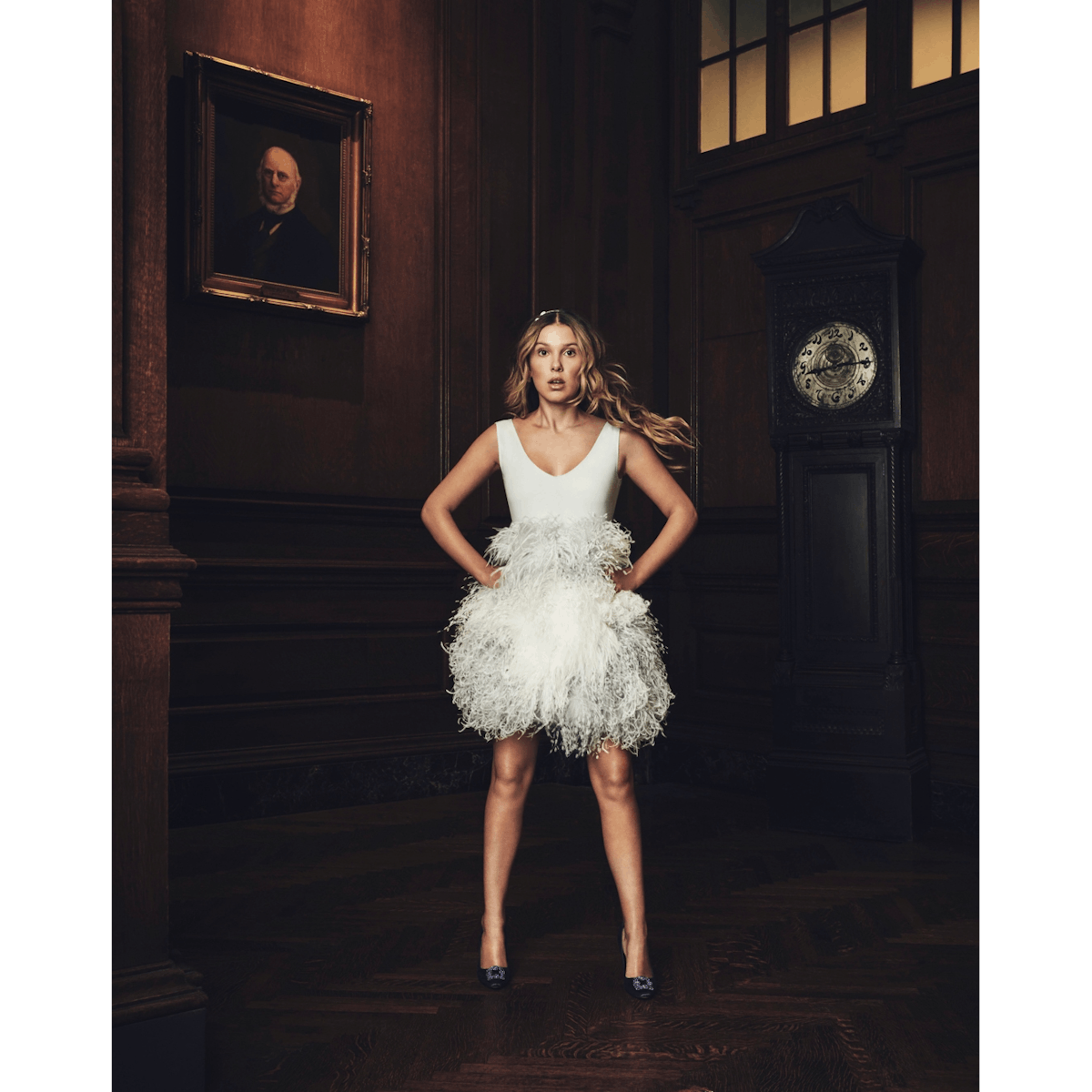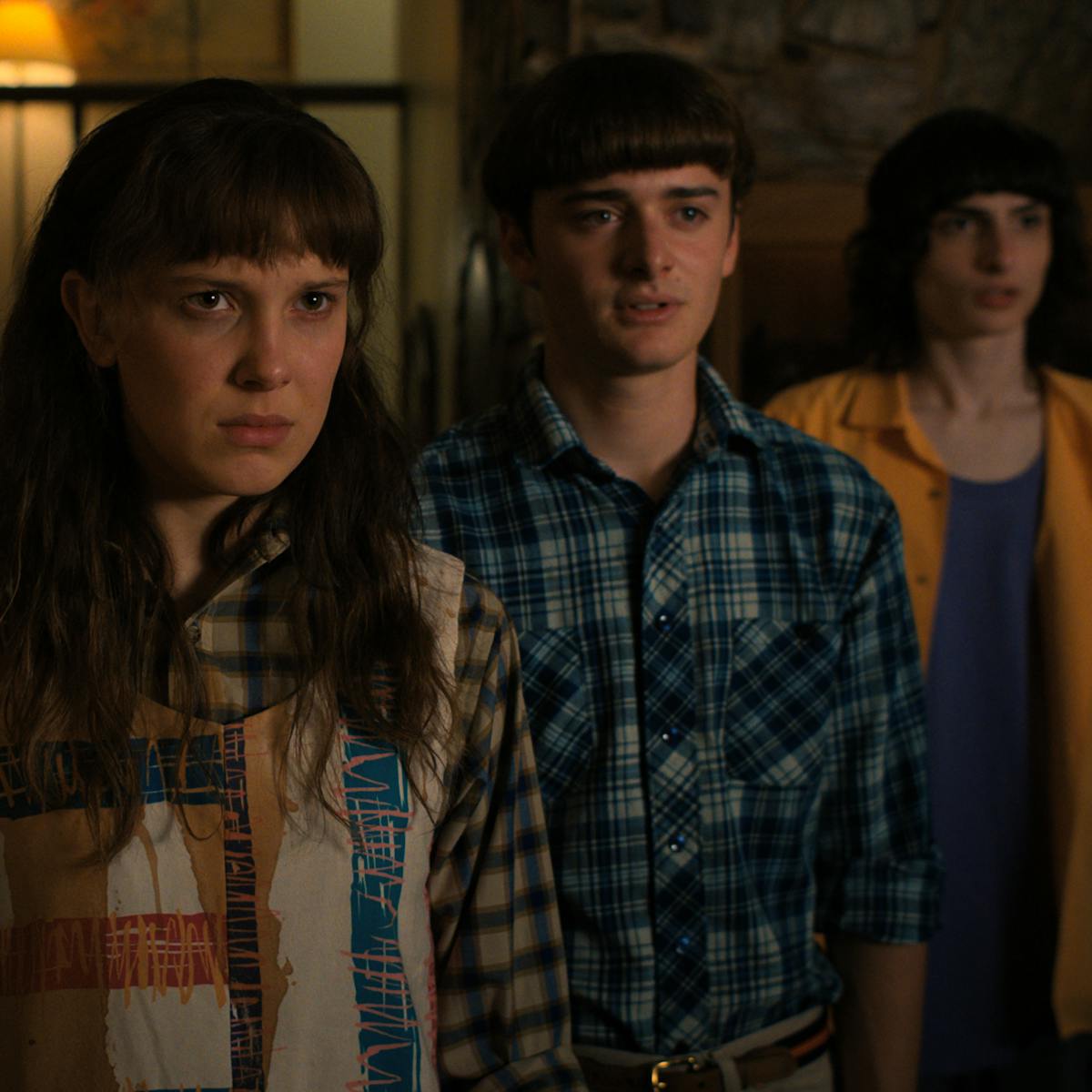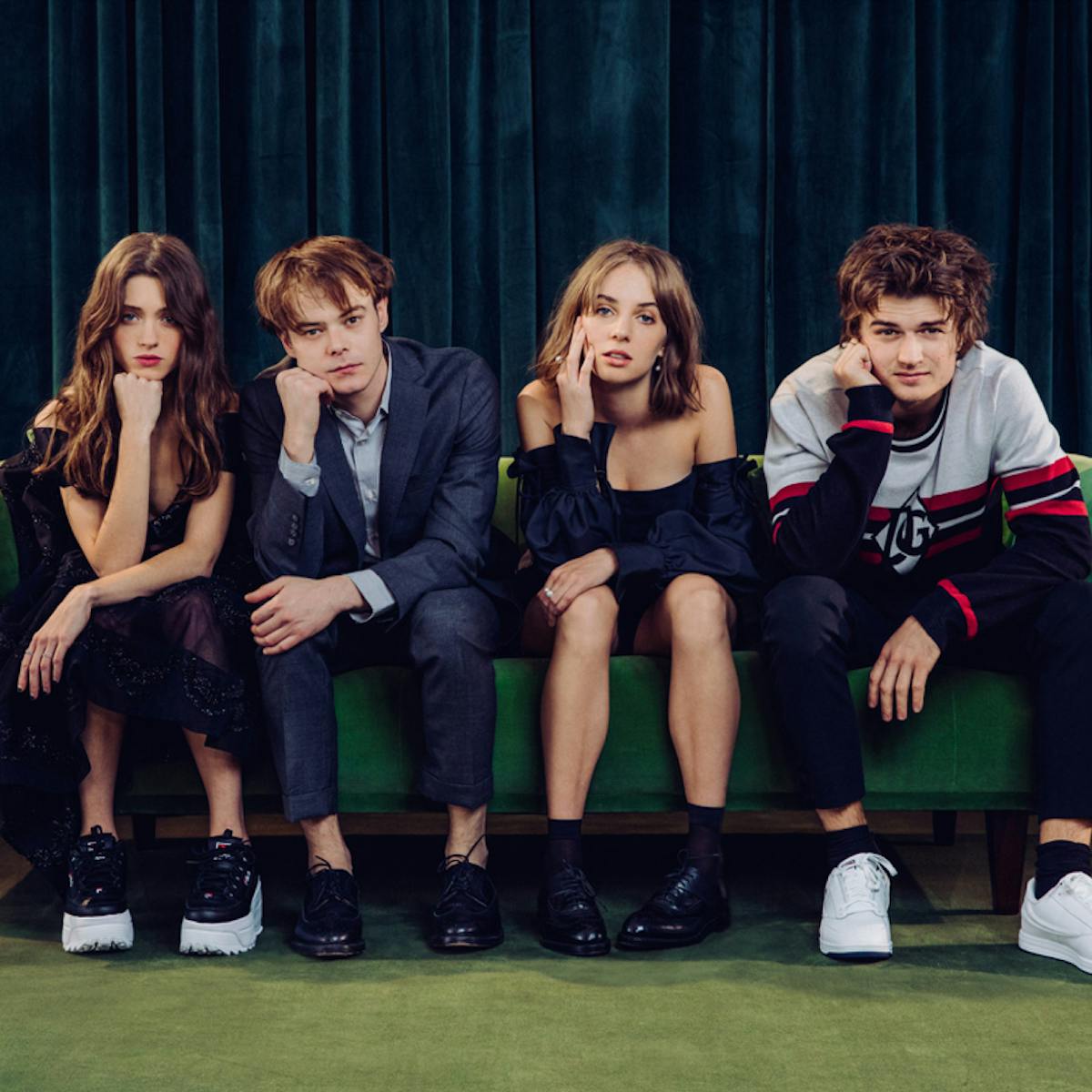Emmy-nominated showrunners and longtime movie-lovers reinvent with Stranger Things 4.
When Matt and Ross Duffer were the same age as the youthful protagonists in their blockbuster series Stranger Things, the identical twin brothers were obsessed with moviemaking. All their free time was spent watching classic films or bringing life to their own stories, some of which starred their friends, or even the brothers themselves. But they quickly discovered that performance was not for them. “We’re terrible actors,” admits Matt Duffer. “Thank God we did not pursue that.”
Channeling those formative experiences, both good and bad, into Stranger Things helped the Duffers bring truthfulness to their sci-fi inflected coming-of-age tale about an endearing group of outsiders from fictional Hawkins, Indiana. That strain of relatable realism — along with a nail-biting narrative, indelible performances from a top-flight ensemble cast, and a slew of 1980s pop culture references — transformed the series into a full-blown obsession within days of its July 2016 debut.
At the time, the Duffers’s relatively limited résumé included one feature film, Hidden, and several episodes of the supernatural series Wayward Pines, but Stranger Things instantly vaulted them to the Hollywood A-list, where they’ve remained ever since. “That felt like a daze to me,” says Matt Duffer now. “I wouldn’t say I wasn’t enjoying it because it was amazing, but it was so surreal, and I couldn’t even really process it. I mean, we were just amazed that someone was allowing us to make something.”
Unlike so many overnight sensations, the Duffers’s brainchild has retained its hold on the cultural imagination, thanks in part to the brothers re-inventing the series with each new season. For Stranger Things 4, the writer-directors decided to fully embrace the horror genre with a storyline that’s part Satanic panic, part A Nightmare on Elm Street. “What we’re trying not to do is repeat ourselves too much,” says Ross Duffer. “If we look back at our favorite movie sequels, whether it’s Aliens or The Empire Strikes Back, the greatest movie sequels always change it up, so that’s what we’ve been trying to do each season.”
The Duffers now find themselves navigating life as seven time Emmy-nominated superstar showrunners as they approach Stranger Things’s penultimate season — and they have big plans ahead. The duo recently announced the launch of their own production company, Upside Down Pictures, and a slate of new projects with Netflix that includes a live-action Stranger Things spin-off. Yet, despite the massive success they’ve enjoyed, they concede that Hollywood sometimes feels surreal. “It is still trippy to get a text message from Winona Ryder,” notes Matt Duffer of one of the series’ beloved leads. “She’s always incredible — but she’s awesome this season.”
An edited version of the conversation follows.
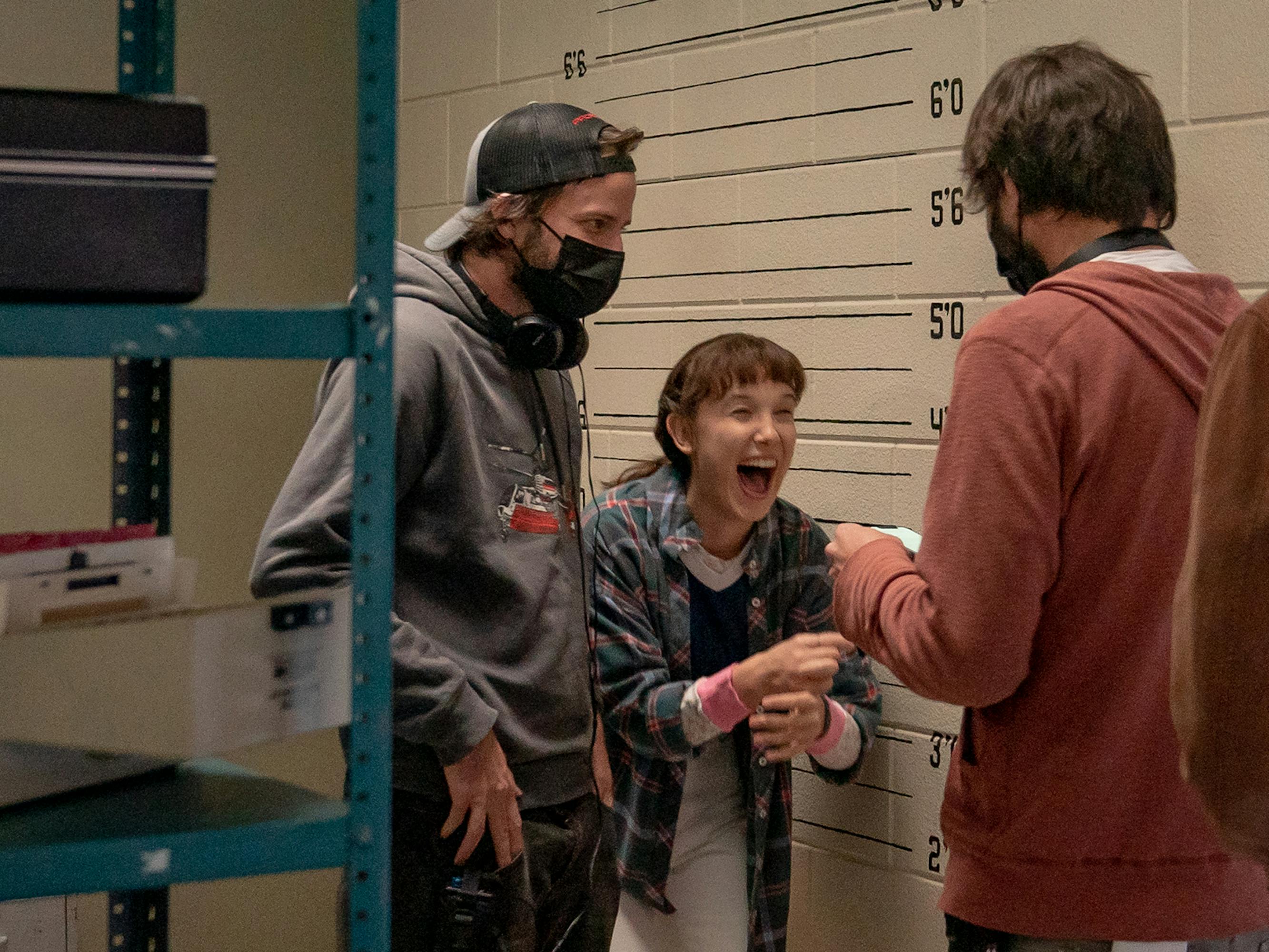
Matt Duffer, Millie Bobby Brown, and Ross Duffer
Krista Smith: You guys have been doing this a long time. You started making movies together as kids, correct?
Ross Duffer: Yeah. Our parents got us a video camera, I think it was in the fourth grade, as a Christmas present, and we started making little movies then. Obviously, they were rough-around-the-edges, but we fell in love with it. We just kept doing it and never really stopped.
Do you remember what you were watching on television or a movie that made you think you could do this?
Matt Duffer: When we saw the trailer for Tim Burton’s Batman, I became obsessed with seeing that. It was PG-13. My mom didn’t want us to see it. Eventually, we convinced her to let us rent it. It blew our minds, and then we figured out this guy, Tim Burton, directed it, and his style was so distinct. Even when we were that young, we were able to track his style across films, so we started becoming fanboys of Tim Burton and started to learn or understand what a director was, that a director had a vision that he was imparting on this material. Slowly that seeped in, [and we realized] over time that this is something we wanted to do. We would always make one movie every summer from the fourth grade all the way through high school, and then we went to film school.
You didn’t grow up in a Hollywood environment, right? You came from the other side of the country.
RD: Yes, Durham, North Carolina. Hollywood felt very far away to us, but we were determined. It was more difficult back then, I think. You didn’t have your phone that you could just point at things and edit it all together on this little device. So it was definitely strange what we were doing, but it certainly helped with our class projects, and got us some good grades. If you could edit something together back when we were growing up, people were pretty impressed.
MD: I do think it’d be harder to stand out now because the cameras on these phones are amazing, and everyone’s got pretty good editing software. But Durham is [the home of] Duke, and we’re right by the University of North Carolina. All anyone cared about was basketball, which we loved too, but we were not athletically gifted to the disappointment of our dad. Our dad, fortunately, was not just a sports guy, he was a huge movie buff, and none of his friends were. So he took us to everything — R-rated films, art house films, big budget studio films. Anything we wanted to see he took us to. We were definitely more movie guys than TV guys. If you told me back then we’d wind up in TV, I’d be excited, but kind of surprised at where we are.
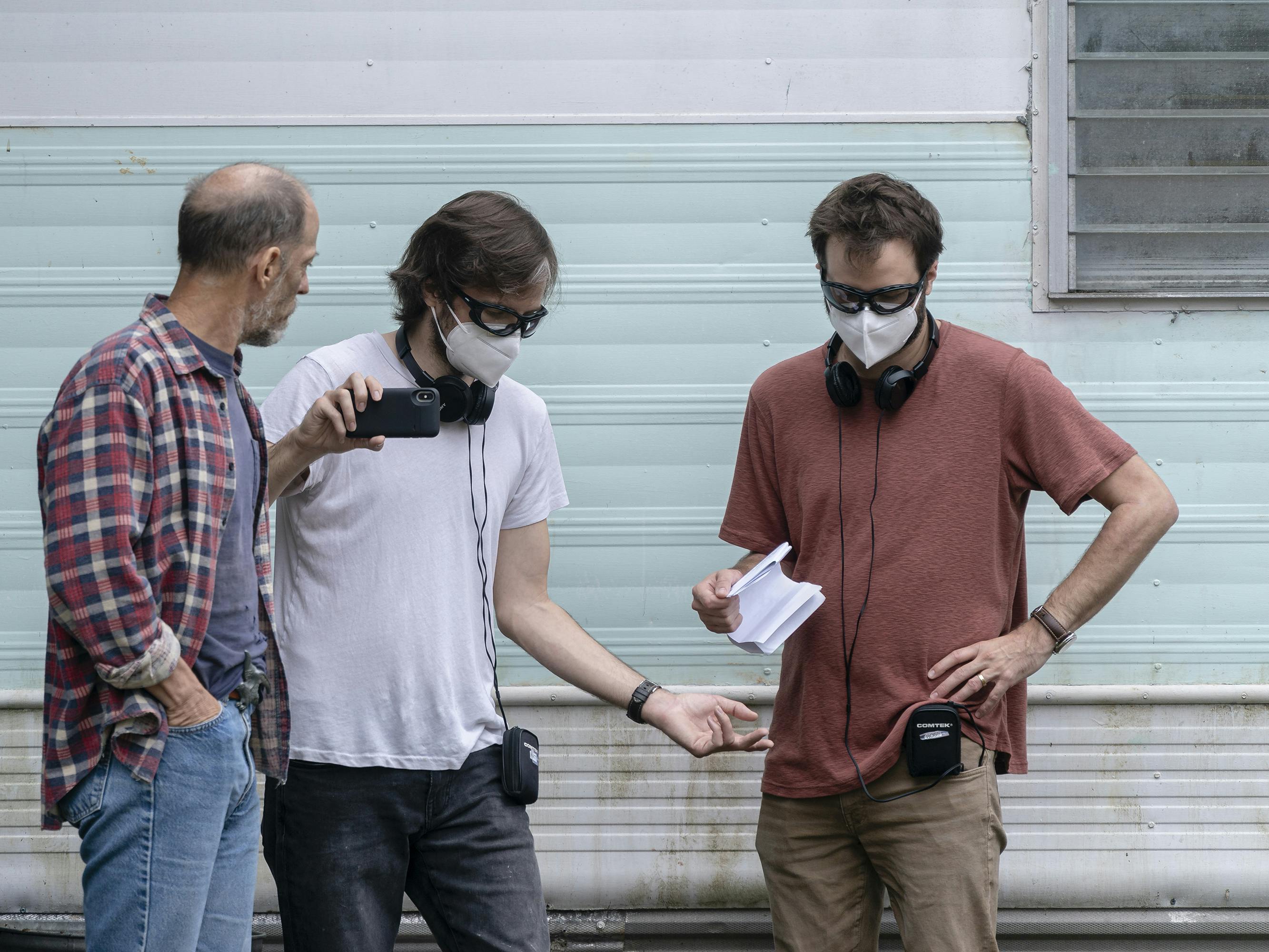
Matt and Ross Duffer
You see a lot of siblings in Hollywood that work together. What do you think it is about the two of you, other than obviously being twins and connected in a different way, that works?
RD: I do think us having that shared childhood experience really helps things. From when we were very young to now, we were telling stories together. Of course, we don’t agree on everything, but generally we see eye-to-eye. The twin factor does help in that we can share a look and we know what the other one’s thinking. With a show like this, there’s so much to do, so it does help to have someone else there that you can check things with and also share the burden of trying to produce something this massive.
MD: It basically provides a compass so that we never get lost. I honestly don’t know how anyone does it without a partner. You’re always dealing with insecurity, and it just helps to have someone at your side the whole time.
The show begins in 1983, and you take us through that decade. For you, what was it about the eighties? Why set the series in that decade?
RD: Well, we were born in ’84, so we’re more 90s kids. When we were the age of the Stranger Things kids, it was the 90s for us. But I do have this nostalgia because when I fell in love with movies, it [was movies from the eighties]. Batman was the late eighties, Goonies, all these films that define my childhood and those filmmakers at the time, obviously Spielberg — [that era] made sense for the story that we wanted to tell, but it also [allowed us to] pay homage to the type of filmmaking and type of stories that made us want to do this in the first place.
You’ve seen these actors — Millie Bobby Brown, Finn Wolfhard, Gaten Matarazzo, Caleb McLaughlin, Noah Schnapp — grow up on set. Have you made a point to write the characters differently as the actors have matured?
MD: We had a lot more time to write Stranger Things 4, and I think it helped. We were shooting for about three weeks, and then got shut down because of COVID. And we saw what all the kids were like. We were able to go back and revisit and rework all the material. You keep thinking of them as kids. They’re not kids anymore. They really are full-blown teenagers.
RD: That really helped inform the tone and story of the season.
MD: In Stranger Things 4, the kids are in high school. And, it varies on who you talk to, but Ross and I had a bad high school experience like a lot of kids. So, to me, high school is dark. That’s when a lot of teenagers are dealing with real emotional issues, anxiety, depression. We wanted to tackle all of that and have this supernatural threat represent that. High school naturally lent itself to what is — without question — the darkest season yet.
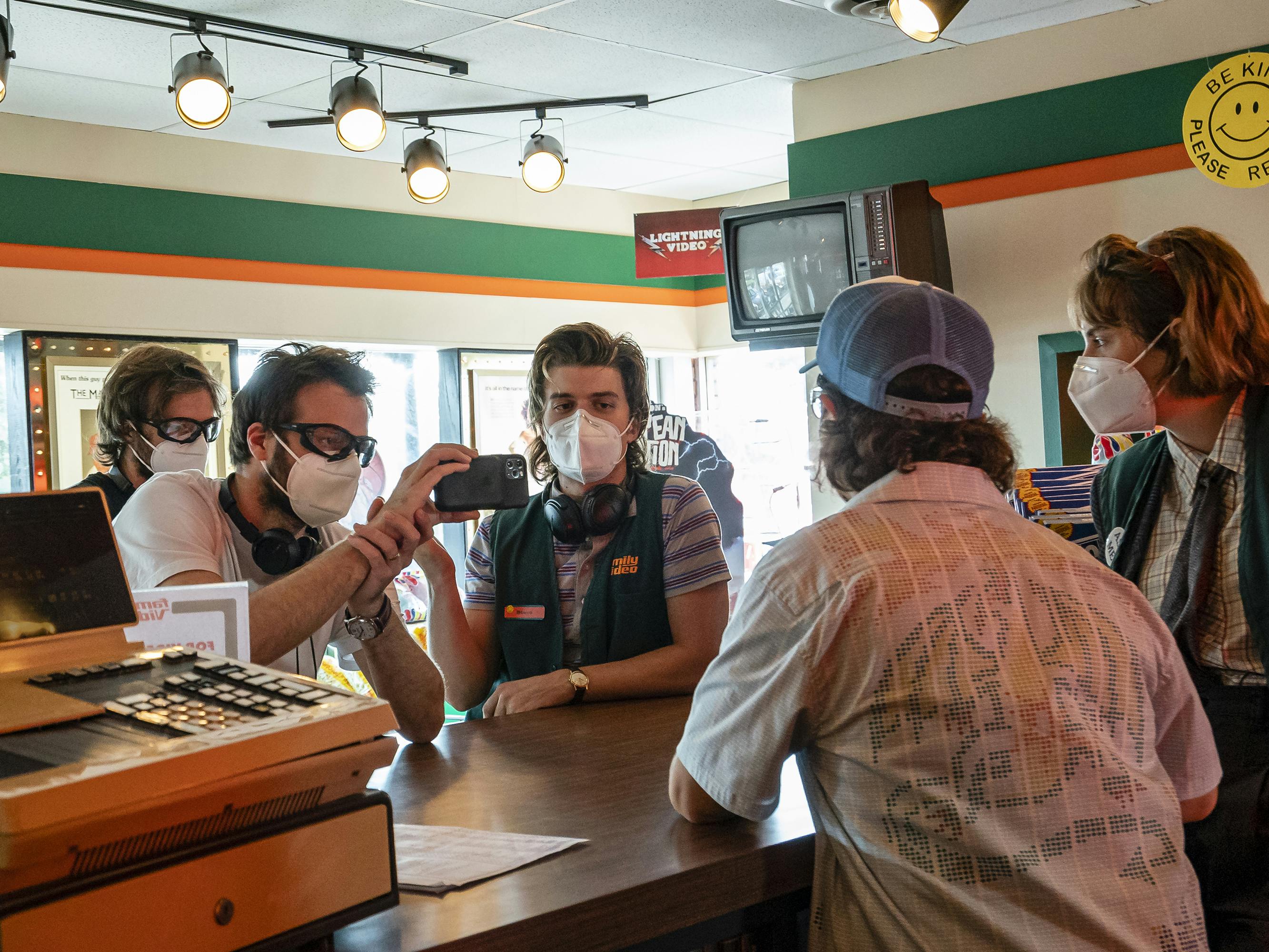
Matt Duffer, Ross Duffer, Joe Keery, Gaten Matarazzo, and Maya Hawke
There is one more season after this, and then it’s goodbye. Matt and Ross, how have you changed over the course of making this show?
MD: We’re maybe a little bit more confident in terms of speaking our minds, and knowing more about how visual effects work, more comfortable around the actors than we were in Season 1. But the goal ultimately is for it to feel the same, to not worry about all the other noise as much as possible. The happiest I am is when something really works either on set, or in editorial, or in the writing of the scene. That’s the ultimate high, I guess, which feels exactly the same as the high I would get in fourth grade. Even though we had about six people watching those movies, it felt the same. That’s ultimately why we’re doing this, to chase that same feeling we had when we were kids. As soon as that’s not fun anymore, that’s a problem. That’s why we want to end on Season 5. We don’t want to do this past the point of running out of story to tell. We still have a ton left, and we’re going to leave and be upset that we’re leaving it. But I think that’s the right place to leave.
RD: Even talking to the actors already about Season 5, [I can tell] it’ll be an emotional journey. It’s been a long journey for all of us, and we’ve all been in it together. Most of us, Winona being the exception, came into it not having a lot of success.
MD: None of us had experienced any of this. One reason the cast is as close as they are is because they’re all going through this together. Unlike kids who pop up in movies, these are kids who have been connected with each other for seven years. They get little breaks, and then they’re brought back together, so it’s this really nice family. We’re going to be ending the show as the kids in real life would be going off to college. So it’s like, Okay, it’s done and you’re off on your own. I’m not worried about a single one of them. They’re all going to do great.
RD: It’ll be sad though.
MD: Yeah. We think we know what the last shot is. It’s going to be really sad to shoot.
